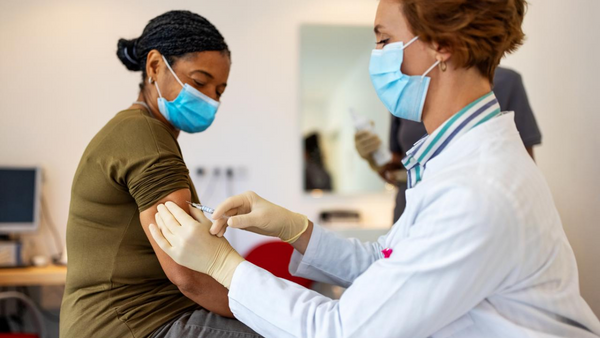London, 21 October 2022 - The crisis in mental health among young people is not abating and has been exacerbated by current economic and social crises, says a new report published today by the RSA (royal society for arts, manufactures and commerce).
The report, produced in partnership with a consortium led by Northumbria University and funded by the Wellcome Trust shows how money affects mental health, and that a Universal Basic Income (UBI) could be a transformative and affordable solution to a public health crisis.
UBI is a largely unconditional, regular payment to all adults to support their basic needs.
New modelling of the potential of a Universal Basic Income shows that up to 550,000 cases of anxiety or depression could be prevented or improved across 14–24-year-olds over a ten-year period if cash transfers to all citizens at a minimum income standard were used.
The RSA’s primary analysis reveals that young people aged16–24 from households within the lowest income bracket have a higher probability than the second lowest bracket of reporting clinically significant symptoms of anxiety and depression. This trend continues up the scale.
This analysis, coupled with conversations with young people about their financial security, indicates the current system, of work, education and support, is not effective for young people.
A survey participant from the 16–18 age group said, “I always feel anxious. Just existing costs money and it is so hard to even afford rent these days.”
The young survey participants said a UBI would support them with increased security, balance between work and wellbeing, improving relationships, better quality work, more opportunities for learning, and would have wider impacts across society including removing the stigma of claiming benefits and helping to put everyone on a more level playing field.
Hannah Webster, Head of Research at the RSA and author of the report, said “Young people have grown up during an era of austerity that has seen deep cuts in public spending and ever widening health, social, and economic inequalities. Today’s research complements the RSA’s Cost of Independence report from earlier this year which showed that 47 percent of all young people are in a precarious financial situation.
“There has never been a more important time to consider bold policies that have the potential to address underlying issues and crisis conditions. UBI can do this."
Today’s report found even a fiscally neutral starter scheme, which would require no additional funding from the Exchequer and no net increase in taxation, would reduce child poverty to the lowest level since comparable records began in 1961.
The RSA report uses the Landman Economics Tax-Transfer Model (TTM) to simulate the impacts of three schemes and demonstrate that UBI schemes can be both affordable and effective.
Howard Reed, Director of Landman Economics, said “We keep being told that the alleviation of today’s heightened levels of poverty would be too complex and too expensive. This report shows that a basic income is within reach, would be affordable and feasible, and would be a clear route to building a better post-Covid society.”
Key findings
As a result of a UBI:
- Child and pensioner poverty could reduce by at least 54% each
- Working age poverty could be down by between 23% and 71% depending on the scheme
- Inequality could be down 46% to the lowest in the world under the most ambitious scheme
A brief summary of the report shows that:
- Universal Basic Income is affordable
- Money affects mental health
- Universal Basic Income is impactful as a preventive public health strategy
- Universal Basic Income is popular in ‘left-behind’ and ‘red wall’ constituencies
- Additional needs for disabled people should be recognised via a ‘UBI+’ approach
- Future UBI trials must include more effective evaluation than in the past so that the true impact of UBI can be clearly measured
Prof. Matthew Johnson, from Northumbria University concluded “The findings of this report are clear: there is no obvious alternative to Universal Basic Income with the same potential to address the crises facing young people.”
Related articles
-
Andy Haldane delivers the Health Foundation's REAL Challenge lecture 2022
Fellowship news
RSA Chief Executive, Andy Haldane, argued in his Health Foundation REAL Challenge lecture that health has rarely mattered more to the UK's strength and growth.
-
Tomorrow’s champions
Feature
Wangui Kimari
How the fastest-growing African demographic is defying negative assumptions
-
Using economic strategies to improve health outcomes
Blog
Ian Burbidge
Ian Burbidge on the importance of an inclusive economy that provides equitable healthcare to the public.


